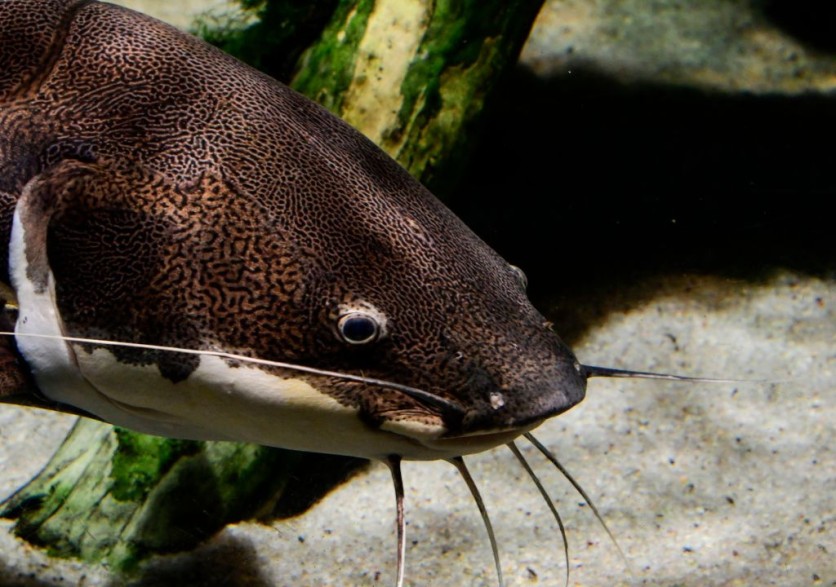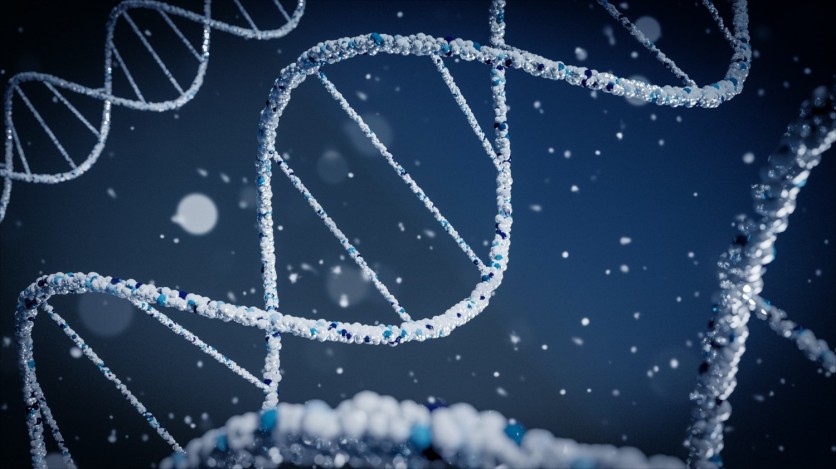A group of scientists hopes to make a hybrid of alligator and catfish. As per a press release, they inserted the alligator gene called cathelicidin to catfish, an antimicrobial protein believed to help the reptiles prevent infectious wounds.

(Photo : EVA HAMBACH/AFP via Getty Images)
A redtail catfish swims in its habitat at the National Aquarium in Baltimore, Maryland on March 9, 2019.
Infection-Resistant Gene
Rex Dunham and Baofeng Su from Auburn University headed the team.
Dunham suggested introducing the alligator gene into catfish genomes to increase their infection resistance. The scientists claim that they ensured that if the transgenic fish escaped the farms, they could not procreate and endanger the environment.
The team inserted the cathelicidin gene into the genome region that codes for a crucial reproductive hormone with the help of CRISPR. Hence, the fish will be incapable of spawning without the hormone.
The scientists' testing showed that the genetically modified fish appeared more resistant to infection.
They also observed that the fish had a considerably higher chance of surviving than those not gene-edited when two different types of disease-causing bacteria were introduced into water tanks.
According to Dunham, the cathelicidin transgenic fish had a two- to five-fold higher survival rate.
Additionally, transgenic fish are infertile and unable to breed unless given reproductive hormone injections.
"This is a breakthrough in aquaculture genetics to confine fish reproduction and prevent the establishment of transgenic or domestic genotypes in the natural environment," the team wrote in their paper.
However, the study is yet to be peer-reviewed.

Is this the Future of Aquaculture?
Greg Lutz of Louisiana State University spent years studying how genetics affect aquaculture, and he was shocked upon finding out about the gene-edited fish.
The purpose of gene editing in farmed animals, according to Lutz, is to reduce the waste produced by fish farms, and the research is encouraging in that regard.
He claimed that raising more disease-resistant fish would use fewer resources and generate less waste.
However, he doubts that this study represents aquaculture's future. According to Lutz, producing enough of these fish to establish a strong, genetically healthy line is too challenging.
Only one other kind of genetically modified fish has previously been approved in the US. AquAdvantage salmon was introduced to the US market in 2021, 26 years after AquaBounty's initial request for FDA certification.
AquaBounty sells huge salmon thanks to an extra gene retrieved from the genome of another type of salmon.
According to Su, the protein produced by the alligator gene will lose its biological function after the fish are cooked. Hence, it is unlikely that it will negatively affect the person consuming the fish.
The study's findings were published online at bioRxiv.
Related Article : CRISPR Gene Therapy Volunteer's Death Raises Questions; Is Gene-Editing Really Safe?

ⓒ 2025 TECHTIMES.com All rights reserved. Do not reproduce without permission.




